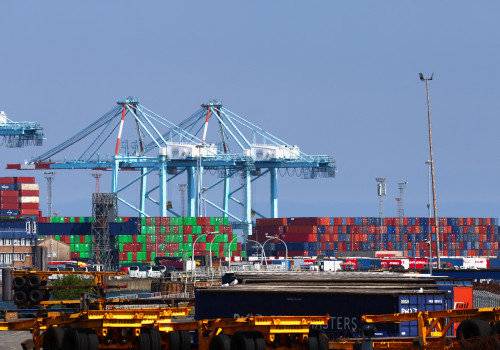WASHINGTON (Reuters) -China’s central bank governor on Friday criticized the U.S. for threatening global financial stability with its “recent abuse” of tariffs, in the wake of recent moves seen by both sides as efforts to de-escalate their trade war.
“The recent abuse of tariffs by the United States has severely violated the legitimate rights and interests of other countries, seriously undermined the rules-based multilateral governance system, dealt a heavy blow to the global economic order, and hurt the long-term stability and growth of the global economy,” People’s Bank of China Governor Pan Gongsheng said in a statement at the conclusion of the International Monetary Fund’s steering committee meeting.
“It has also triggered sharp fluctuations in global financial markets,” which has threatened global financial stability and posed challenges to emerging and developing nations, he said.
Pan added that there was an urgent need for countries to strengthen policy coordination and promote trade liberalisation.
China exempted some U.S. imports from its steep tariffs in a sign the trade war between the world’s top two economies could be easing, though Beijing quickly knocked down U.S. President Donald Trump’s assertion that negotiations were under way.
In the statement, Pan also said China’s central bank will lower the reserve requirement ratio and policy rate “as warranted by economic and financial developments at home and abroad, as well as financial market performance.”
“We will adopt a policy mix to keep liquidity abundant, lower the liability cost of banks, and persistently bring down the overall financing costs for the real economy,” he said.
On exchange rates, Pan said China will “continue to let the market play a decisive role in the formation of exchange rate, while maintaining exchange rate flexibility.”
“At the same time, we will better guide expectations and keep the RMB exchange rate basically stable at an adaptive and equilibrium level,” he said.
(Reporting by Leika Kihara;Editing by Dan Burns)



